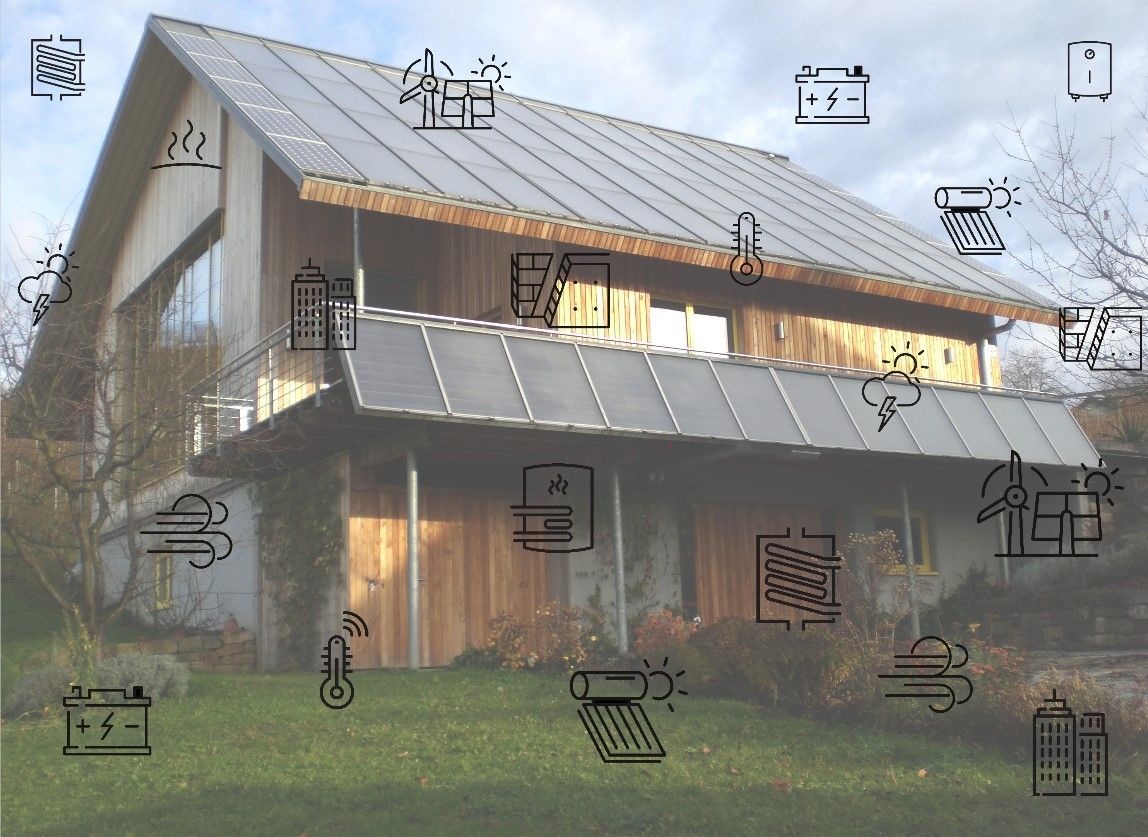News #10
New IEA Task: Identifying Sustainable and Economical Heating Technologies
An increasing number of consumers and investors seek heating systems that are both sustainable and economical. Up to now, an international data and evaluation basis across all heating technologies has not been available, thus prohibiting a valid ecological and economic assessment of the available technologies. Such information is essential for manufacturers to carry out sustainable product development and also for selecting the optimal combination of different heating technologies. The international working group "Task 71- Life Cycle and Cost Assessment for Heating and Cooling Technologies" within the “Solar Heating and Cooling” program of the International Energy Agency now intends to close this gap by not only providing a methodology for comparison as well as uniform data formats but also by presenting reference heating systems and scenarios for different countries worldwide.
"For an investor or user, it is currently difficult to compare different heating technologies in terms of economic efficiency or sustainability, since all studies are calculated using different boundary conditions," says Dr. Karl-Anders Weiß of the Fraunhofer Institute for Solar Energy Systems ISE, project manager of Task 71. These assumptions may include factors such as fuel costs, interest rates, operating lifetime, or also the technical components included in the evaluation.
The Task's objective is to investigate which technologies are best suited - from an environmental and economic perspective - for supplying heat to residential buildings.
Together with industry partners, who provide the component data, an internationally recognized method is to be developed, which can be used to evaluate and compare heating technologies based on fourteen to sixteen environmental and economic parameters. For each participating country, a specific data set which includes values for the inflation, investment costs of heating and fuels, tax rates and the solar radiation, are to be collected. "Even within Europe, these values may differ widely," explains Dr. Weiß.
The project team will define typical reference systems and simulate their performance in various scenarios over the entire lifetime of a heating system, i.e., up to 20 years.
For the ecological assessment, the production, operation and end-of-life recycling will be considered. The economic assessment will additionally consider the external parameters such as the course of the oil prices or the interest rates. To do this, the task group will be coordinating with other working groups in the International Energy Agency IEA, for example, the working groups focusing on heat pumps, photovoltaic systems or heat grids.
The resulting national data sets and reference cases created in the task will be made available to decision makers in each of the participating countries.
So far, countries in Europe, North America, Asia, Australia, and Africa have expressed interest in joining Task 71. The IEA-SHC project runs until December 2025.
For the German market, the project partners have already defined four typical residential buildings, their respective heating demands and ten different heating systems. The four typical houses selected are two single-family houses and two multi-family houses, one old and one new respectively. To reach this result, the consortium worked together with research institutes, manufacturers as well as with real estate and other industrial associations. The acquired data shall be incorporated into common software tools, such as SimaPro or GabI, used in the building industry to perform sustainability assessments. The collected information shall make it easier for investors to make the right decision when selecting a heating system.

Last modified: